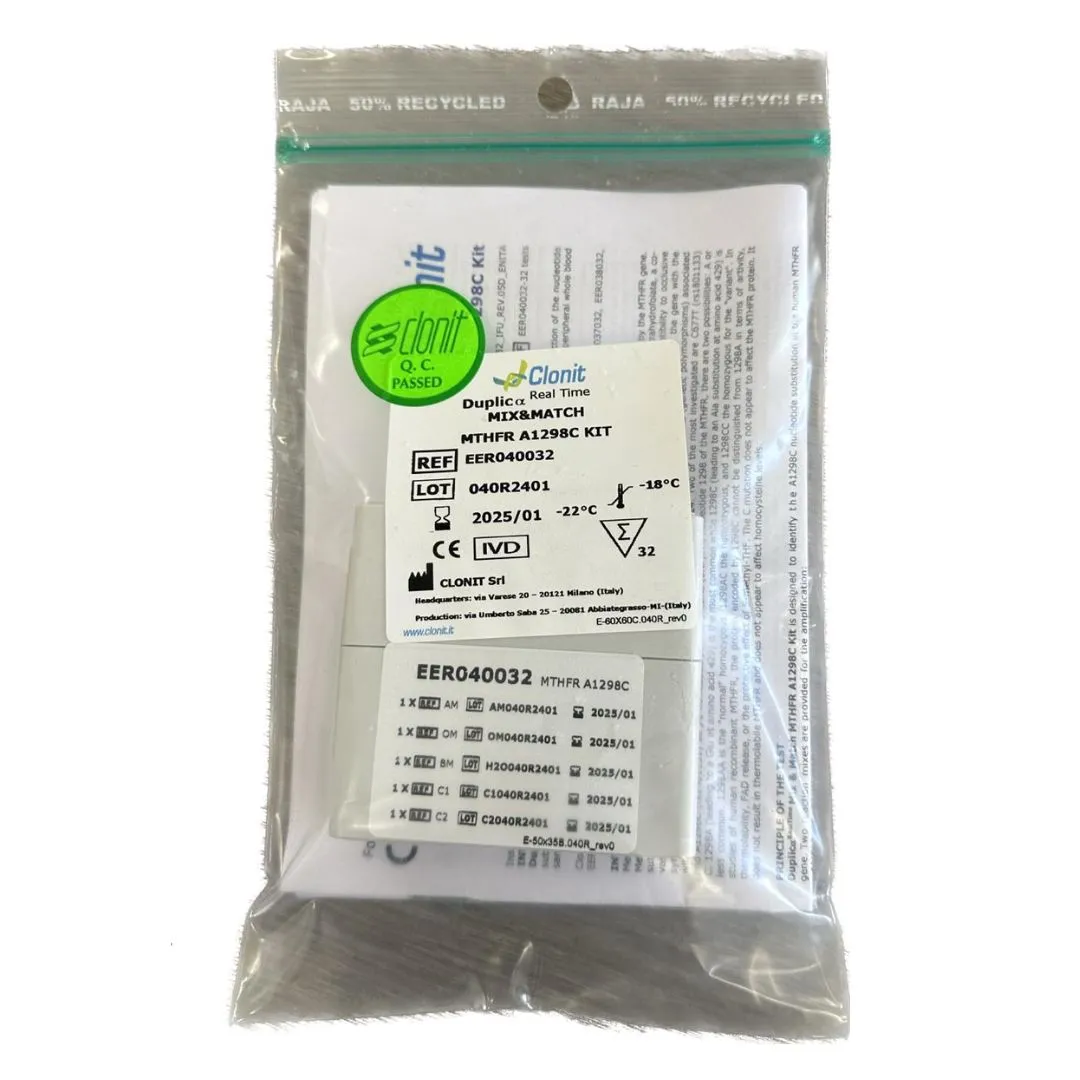.webp)
DuplicαRealTime Mix & Match FACTOR V Kit
Overview
The resistance to Activated Protein C (APC), characterized by a poor response to anticoagulant activity of APC, a key enzyme in the downregulation of blood coagulation which cause a disposition for hypercoagulable state, increases the risk of thrombotic events. A number of clinical studies show a prevalence of APC resistance of 20-60% among patients with venous thromboembolism (VTE). The actual thrombotic risk is moderate with an odds ratio of 5-7 but its high prevalence makes it by far the most important risk factor know today, even higher than the sum of contributions from inherited deficiencies of Antithrombin, protein C and protein S. At least 90% of the cases with resistance to APC are explained by an nucleotide substitution in the gene for the coagulation Factor V (Guanine to Adenine, G1691A) causing the substitution of an Arginine to Glutamine at position 506 (FV Q506, often denoted as Factor V Leiden mutation), originating one of the three APC cleavage sites in activated Factor V. The mutation is inherited as an autosomal dominant trait and has a prevalence of 2% to 10% in the general Caucasian population. Heterozygous carriers for Factor V Leiden have a 5 to 8 times increased risk of thrombosis and a 30 to 40 times for homozygous carriers. Recently it has been showed a 1.3-fold increased risk only for a coronary disease. Heterozygous carriers who take oral contraceptives are at a 15-fold increased risk of VTE, while carriers also heterozygous with Factor V Leiden have an approximate 20-fold higher risk and it seems to be higher when the coagulation Factor II G20210A transition is associated with the Factor V Leiden mutation.
Targets:
- Nucleotide substitution G1691A (allelic variant g.169549811C>T) of the blood coagulation Factor V gene
- Internal Control (IC)
Diagnostic samples:
- Peripheral whole blood samples collected in EDTA
DNA Extraction:
-
Compatible with the most common DNA Extraction and Purification Systems
Real-Time PCR instruments:
-
Compatible with the most common Real-Time PCR Systems
- Categories : PCR Kits, Diagnostic Use, Human Diagnostics
.webp)

.webp)